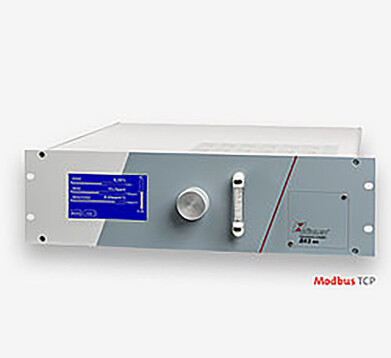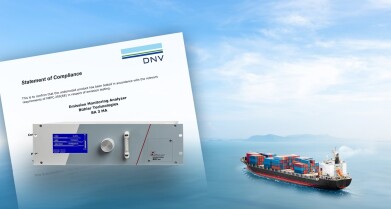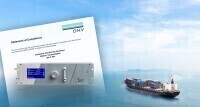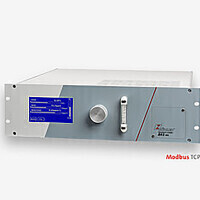Measurement and testing
Future-proof gas analysis technology for maritime emission monitoring
Apr 02 2025
Undoubtedly, international shipping contributes significantly to greenhouse gas and pollutant emissions. Propulsion engines predominantly burn low-purity fuels containing high levels of sulphur content. To solve this problem, the transformation of ship propulsion systems is being initiated on a global basis. Evermore stringent emission limits are being set and implemented successively. The International Maritime Organization (IMO) has laid out strict environmental protection regulations for the shipping industry via the "International Convention for the Prevention of Pollution from Ships" or MARPOL (Marine Pollution) Convention.
The transformation process will extend over the coming decades; it is not economically feasible for many nations to retrofit their fleets quickly. It is also unrealistic to provide the requisite amount of low-emission or emission-free propulsion systems within a matter of just a few years.
Efforts to significantly reduce maritime fuel pollutant content and ship engine emissions using exhaust gas cleaning systems were initiated several years ago. Exhaust gas scrubbers are widely used for this task. They dissolve gaseous pollutants in water before discharging them into the sea. When these devices are operated in an open-loop system, the pollution is transferred from the air to the water. Therefore, efforts to develop improved exhaust gas cleaning methods are ongoing, including scrubbers in closed-loop systems, whereby wastewater is collected and disposed of on shore.
Whatever is the lesser evil in exhaust gas cleaning, environmental regulations stipulate compliance and monitoring of legal limit values. Therefore, exhaust gas analysis systems designed explicitly for ship operations and approved by classification bodies are needed.
Bühler Technologies has specialised in this particular application for many years. They provide the maritime industry with a comprehensive programme of cutting-edge technology and service, from gas sampling points and measurement gas transport to conditioning and analytical evaluation. Bühler’s most recent development is the BA 3 MA analyser.
This instrument has DNV certification per test specification CG 03 339 and has approval in accordance with regulation MEPC 259(68). It quickly provides all the key parameters for monitoring maritime emissions, including the measurement of sulphur dioxide - SO2 (NDUV with a range of 0-100 ppm) and carbon dioxide - CO2 (NDIR with a range of 0-10 vol.-%) and the SO2/CO2 ratio output in ppm/vol.-%. All status, limit value, and alarm messages are displayed clearly on the touch display and can be output via potential-free relay contacts and Modbus TCP. Measurement values can be accessed in analogue and digital format via Modbus TCP.
Regardless of which exhaust gas cleaning methods prevail, using Bühler Technologies’ marine components offers a future-proof solution for emissions monitoring in the shipping industry.
Digital Edition
PIN 26.1 Feb/Mar 2025
March 2025
Analytical Instrumentation - Elemental Analysis for Quality and Process Control at Refineries, for Lubricants and Wear Metals in Engine Oils - Synthetic Lubricants: New Developments - Scaling...
View all digital editions
Events
Apr 29 2025 Mumbai, India
Apr 29 2025 Edmonton, AB, Canada
May 05 2025 Houston, Tx, USA
May 06 2025 Nuremberg, Germany
Canada Gas & LNG Exhibition & Conference
May 06 2025 Vancouver, BC, Canada




.jpg)

















